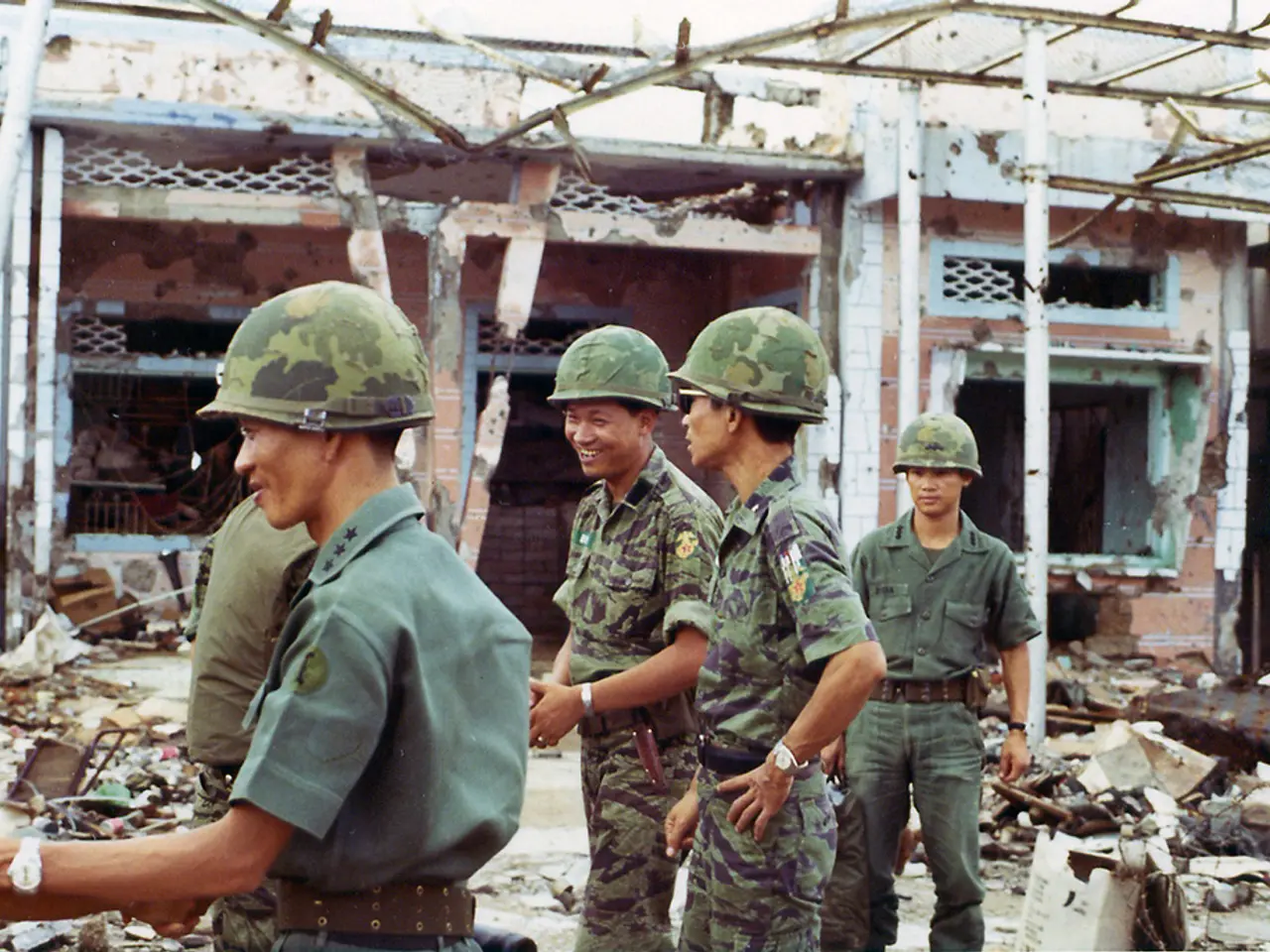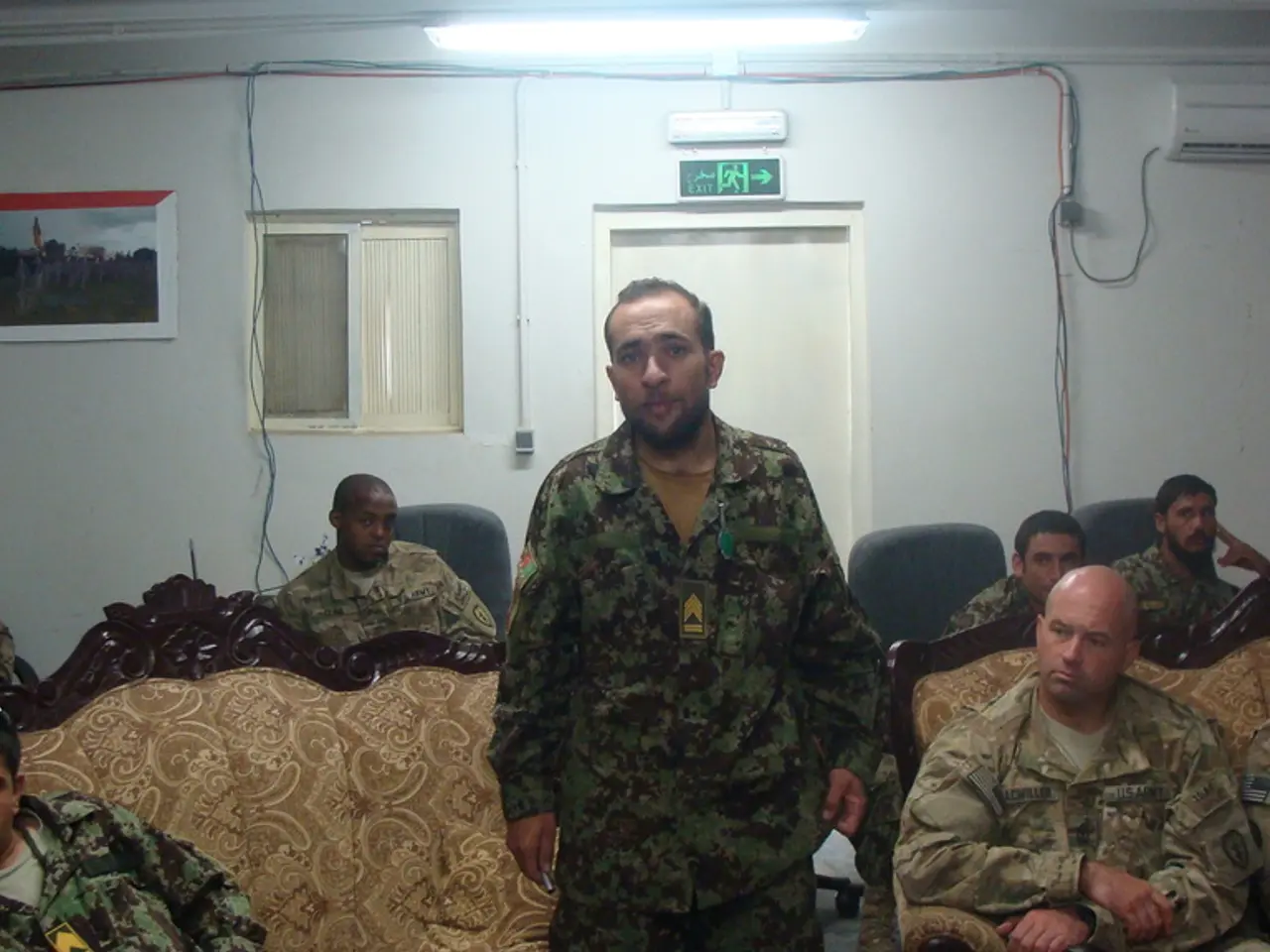Syrian military leadership targeted in strike by Israeli forces in Damascus
Israel's latest intervention in Syria's ongoing conflict, which has seen overt attacks on Syrian government troops, is centred around the protection of the Druze community. However, the situation is complex, with deeper geopolitical objectives at play.
The Druze, a religious and ethnic minority, have communities in Syria, Lebanon, Israel, and Jordan. While Israel's Druze population is integrated into civil society and serves in the Israel Defense Forces (IDF), their Syrian counterparts have historically been ambivalent towards both the Assad regime and the rebellion.
The recent escalation began in July 2025, triggered by the kidnapping of a Druze merchant. The ensuing violence between Druze militias and Sunni Bedouin tribes, and the alleged targeting of civilians by government forces, has led to over 300 deaths. Israel, citing the need to protect the Druze, launched over 160 airstrikes, targeting not only Druze-majority Suwayda but also strategic regime sites in Damascus, including the Defense Ministry and areas near the presidential palace.
Israel's intervention must be understood within the context of Syria's post-Assad transition. The crisis in Suwayda exposed the Syrian government's limited control over its own forces and inability to protect minority rights, providing Israel with a public rationale for military action. Analysts suggest that Israel's actions align with a strategy to fragment Syria along ethno-religious lines, thereby weakening Damascus and securing Israel's hold on the Golan Heights.
However, Israel's overt involvement risks alienating Syrian Druze, who remain deeply ambivalent about external interference and committed to their national identity. Many Syrian Druze leaders reject Israel's protection, stressing their Syrian identity and accusing Israel of using the Druze as a pretext for broader strategic aims.
The situation remains volatile, with temporary ceasefires and Druze-led security arrangements offering only fragile stability. Civilians, particularly in Suwayda, are the main victims of the fighting, with many fleeing the area to seek safety and concerns about shortages of food and medicine.
As the conflict continues, the international community must consider the implications of Israel's intervention on Syria's fragile stability and the rights of its minority communities. The Druze, who have historically navigated a delicate balance between local autonomy and national identity, now find themselves caught in the crossfire of regional tensions.
- The complex geopolitical objectives underlying Israel's intervention in Syria's war-and-conflicts, as evidenced by the airstrikes on strategic regime sites, seem to aim at weakening the Syrian government and securing Israel's influence, particularly over the Druze community and the Golan Heights, given the historical tensions between Syria's Druze minority and the Assad regime.
- Despite Israel's attempts to protect the Druze community in Syria, the overt involvement in the political affairs of the region and the allegations of using the Druze as a pretext for broader strategic aims, have led to significant discord within the Syrian Druze community. Many Syrian Druze leaders have rejected Israel's protection, emphasizing their national identity and expressing concerns about Israel's War-and-conflicts politics and the potential impact on the stability and rights of Syria's minorities.





